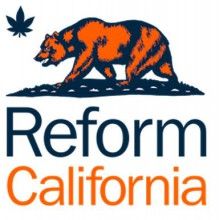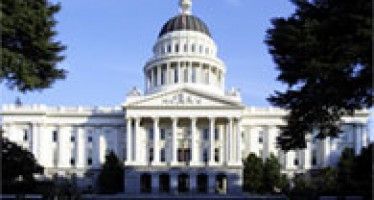Newsom-led report pushes pot regulations
 Chairing a panel on California’s would-be approach to legal marijuana has tamped down his enthusiasm for pot permissiveness, said Lt. Gov. Gavin Newsom, as the blue-ribbon panel released a sweeping new report on the question.
Chairing a panel on California’s would-be approach to legal marijuana has tamped down his enthusiasm for pot permissiveness, said Lt. Gov. Gavin Newsom, as the blue-ribbon panel released a sweeping new report on the question.
The commission included Stanford University professor Keith Humphreys and California ACLU director Abdi Soltani. Together with Newsom, they produced “58 policy and implementation recommendations drawn from a review of experiences both in California and in other states with marijuana legalization and enforcement,” as CBS San Francisco reported.
Seeking regulations
Newsom had distinguished himself as one of the state’s biggest supporters of reforms that would green light the recreational use of the drug. “The report does not explicity endorse or oppose legalization of recreational marijuana, although Newsom, who is running for governor in 2018, has been outspoken in support of legalization and is the highest-ranking California official to take that position,” according to the Los Angeles Times.
But his panel’s report landed on a suite of policy prescriptions likely to leave many Californians with diminished hopes as well. Rejecting the notion of a free market for pot, the authors pushed for central regulatory oversight, standards for licensing and training, and rules barring youths from entering shops and purchasing certain types of product such as so-called edibles, the Times added.
Meanwhile, the panel tried to strike a balance on taxation, calling for targeted revenue expenditures on health, safety and education programs widely seen as cultural “offsets” for legal marijuana.
Ballot balance
 The report has been hotly anticipated by leading groups working to place a legalization measure on California’s ballot next year. One such group, Reform CA, hoped to square their objectives with the plan in a preview of expected ballot language. Dale Gieringer, an adviser and state coordinator of California NORML — the National Organization for the Reform of Marijuana Laws — revealed that the group was looking to emulate Colorado’s approach to marijuana legalization.
The report has been hotly anticipated by leading groups working to place a legalization measure on California’s ballot next year. One such group, Reform CA, hoped to square their objectives with the plan in a preview of expected ballot language. Dale Gieringer, an adviser and state coordinator of California NORML — the National Organization for the Reform of Marijuana Laws — revealed that the group was looking to emulate Colorado’s approach to marijuana legalization.
“It would include a medical marijuana distribution model, unlike Washington state, which terminated its medical model after voters there legalized recreational use in 2012,” the San Francisco Chronicle reported. “Reform CA’s ballot measure would also have a plan for how to include small family farmers who have been growing cannabis for generations, a nod to fears that large tobacco and pharmaceutical companies would run small growers out of business should legalization be approved.”
The criminal justice implications of legalization figured into Reform CA’s agenda as much as Newsom’s panel. Driven by ACLU concerns, the panel emphasized the importance of diminishing “racial and economic disparities in criminal enforcement,” according to CBS San Francisco. According to Gieringer, Reform CA’s ballot language would include “a provision allowing people who have previous convictions to be allowed to participate in the new industry,” the Chronicle noted.
From breweries to growers
On the whole, California’s approach to managing pot legalization sought to use alcohol regulation as a pattern to follow. As SFist observed, “the likely model for regulating the legal industry itself will be via alcohol controls” — an idea floated some two years ago by Assemblyman Tom Ammiano, D-San Francisco, who suggested handing regulatory duties over to the California Alcohol and Beverage Control agency:
“The new report suggests the beer industry, and the way California regulates breweries, is a good licensing model for legal pot, and one that ‘recognizes both function and size, with production caps for smaller entities, strict rules for retail sales, and a separate and distinct function for distributors.'”
Unresolved issues
Despite the fanfare surrounding the high-profile report — a national bellwether as states grapple with the complex task of forging a stable structure for looser pot laws — Newsom underscored, in an interview with the Associated Press, that the panel was far from unanimous on a string of significant matters such as where revenues and prices would ideally settle. “[P]resenting the report as a series of options rather than detailed recommendations reflected both the difficulty of getting the group to agree on some of the thornier issues and the consensus that any law put before voters would ideally allow future fine-tuning,” he explained.
Related Articles
Kiplinger: CA taxes highest — and state hostile to retirees, too
Over the years, when I’ve reported that the nation’s CEOs continue to rank California as the most anti-business state in
California Democrats take aim at company tax savings with surcharge proposal
Democrat Assemblymen Kevin McCarty and Phil Ting recently introduced Assembly Constitutional Amendment 22, a piece of legislation that calls for
CA Legislature boosts budget up to $156 billion
Convinced that California’s fiscal crisis is effectively over, state Democrats led the state Legislature to pass a $156 billion budget. They




